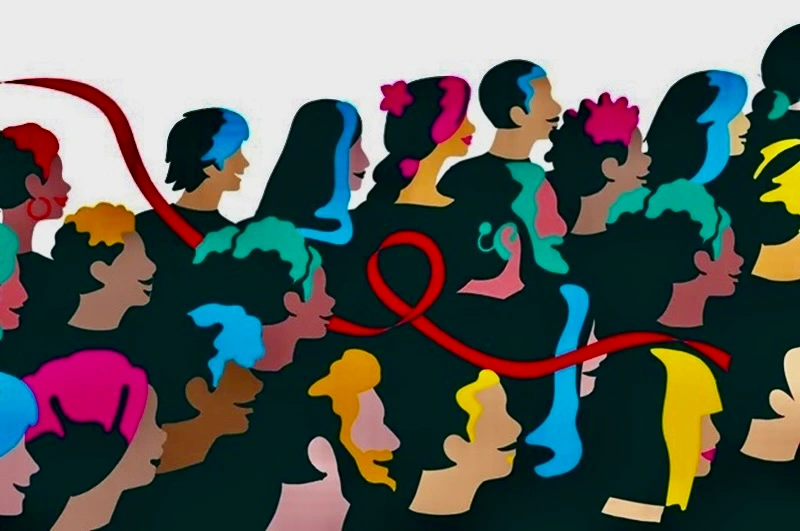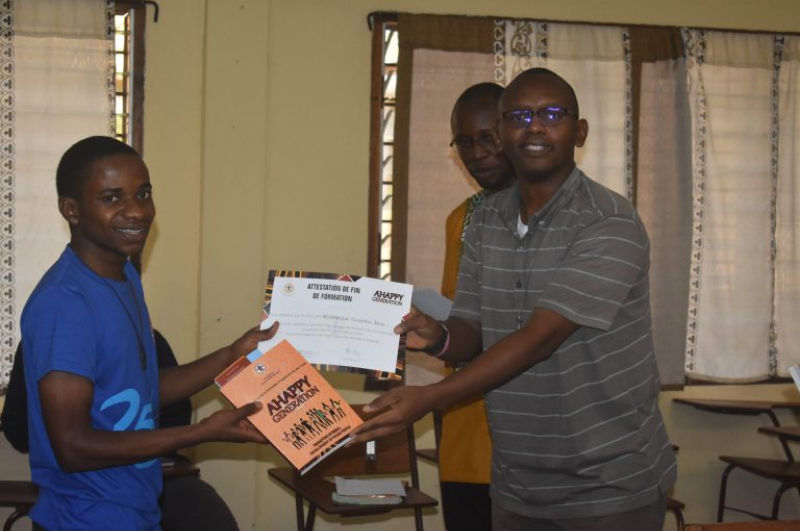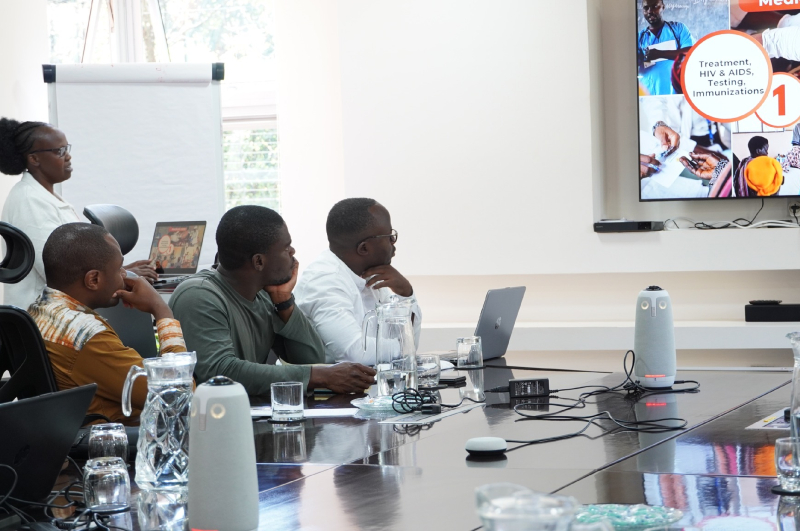

Theme “Take the rights path: My health, my right!”
Nairobi, Kenya - 01 December 2024.
Dear Friends, Colleagues, and Partners in Mission,
Today marks World AIDS Day, an occasion traditionally observed by the Jesuit Conference of Africa and Madagascar (JCAM) with a statement. As we reflect on this day, we must ask: what progress has been made since our last declaration? Have our previous cries of distress been heard, or have they echoed unheard in the void?
This year, UNAIDS has chosen the theme "Take the Rights Path" for World AIDS Day. Are we, then, on the wrong path? If so, for how long have we strayed? Rather than indulge in vain speculations or sterile complaints, let us use this moment to pause and evaluate the year now ending. Let us draw from it renewed motivation and strength to continue the fight. Today, we unite our voices to reflect, recommit, and advocate for a path that upholds the dignity and rights of every individual. Indeed, the struggle for human dignity is unending.
You may recall that on December 10th, 2023, during the 75th anniversary of the Universal Declaration of Human Rights, Pope Francis called upon the Church to maintain its steadfast commitment to human rights. He offered prayers for all those fighting for these rights, reminding us of our collective responsibility.
Since the last World AIDS Day, the facts have remained essentially unchanged. Africa continues to bear the heaviest burden of the HIV epidemic, accounting for over 60% of global infections. This stark reality challenges us as Jesuits to place service to faith, the promotion of justice, and the defense of human dignity at the heart of our mission.
Does the direction indicated by UNAIDS promise to benefit us? This theme deeply resonates with the mission of the African Jesuits AIDS Network (AJAN) to promote justice and human rights, particularly for people living with HIV and AIDS and those vulnerable to it. A practical expression of AJAN's commitment to human rights is evident in its intervention areas, including healthcare, education, stigma reduction, youth formation, economic inclusion, and community participation, among many others.
Our understanding of human rights extends beyond policies, embodying Jesus' trajectory in Matthew 8:1–4—a path of dissolving alienation, extending a hand of compassion, and daring to embrace our Ubuntu concept of the common good: generosity, reciprocity, and togetherness with those often overlooked. We are convinced that any action taken in the spirit of compassion, with the goal of human well-being, will engender respect for rights in all forms for all.
While the Church and Jesuits specifically have walked alongside those affected and infected by HIV, we recognize that the journey is far from over. Alarmingly, we are witnessing a resurgence of challenges that threaten to undermine progress, creating new vulnerabilities, marginalization, and exclusion. We must build frameworks that respect divine dignity and affirm the sacredness of every life. Our communities, too, must be empowered to demand compassion, justice, and accountability from their leaders in a shared mission to uplift, include, and honor every individual.
On this World AIDS Day, my heart and prayers go out to all the resilient men, women, and children whose lives are a constant struggle due to HIV. As Jesuits, we commit to walking with our communities and letting compassion, the pursuit of justice, human rights, and solidarity guide our work. Together, we can end AIDS as a public health threat, especially on our continent. The just path steers clear of the dominant ideologies of this world, choosing instead compassion and genuine commitment to human dignity in all its aspects.
With every blessing,
Fr. José MINAKU, SJ | President, JCAM.
Related Articles


Select Payment Method
Pay by bank transfer
If you wish to make a donation by direct bank transfer please contact Fr Paul Hamill SJ treasurer@jesuits.africa. Fr Paul will get in touch with you about the best method of transfer for you and share account details with you. Donations can be one-off gifts or of any frequency; for example, you might wish to become a regular monthly donor of small amounts; that sort of reliable income can allow for very welcome forward planning in the development of the Society’s works in Africa and Madagascar.
Often it is easier to send a donation to an office within your own country and Fr Paul can advise on how that might be done. In some countries this kind of giving can also be recognised for tax relief and the necessary receipts will be issued.



